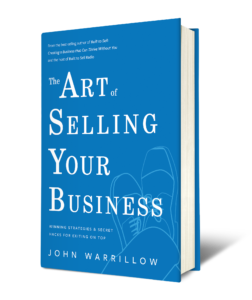When buying a business in Miami or selling it, it’s critical to put your emotions aside to conduct an accurate business appraisal and determine a reasonable and competitive selling price. You’ll need to complete an objective analysis of the company, research the current market, and consider hiring a professional business appraiser. The sale of your business will demand quite some time, and once the work is done, you’ll need to figure out how to manage the earnings.
Business valuation isn’t easy unless you’re a natural-born business or numbers person (or, say, an accountant). However, here you will learn how to do business valuation before buying or Selling A Business In South Florida.
Do the correct valuation before Selling A Business In Miami
Even if you’ve never heard the word, if you’re aware of the EBITDA concept, you may already know about SDE or seller’s earnings. To refresh your memory, EBITDA stands for earnings before interest, taxes, depreciation, and amortization — in other words, it’s a company’s pure net profit.
Business owners calculate SDE to estimate the actual value of their company for a new owner, similar to EBITDA. SDE will include expenses such as income reported to the IRS, non-cash expenses, and whatever revenue your company truly earns. In contrast to EBITDA, you’ll factor in the owner’s compensation and benefits into your SDE estimate.
Because small-business owners frequently expense personal benefits, large businesses typically use EBITDA estimates to value their businesses, while small businesses commonly use SDE. Therefore, it’s also critical that potential customers comprehend SDE. Most likely, business owners will give you that amount. Therefore it’s crucial to understand how the owner arrived at that figure and what these figures mean for the actual company.
Start with your pretax and pre-interest earnings to calculate your company’s SDE. Then, as company expenses, you’ll bring any items that aren’t vital to operations, such as vehicles or trips. Your SDE can include employee outings, charitable donations, one-time expenditures, and your compensation. (When you provide a buyer your valuation, they may inquire about your discretionary cash flow, so be prepared to mention and value each significant spend or purchase.)
Finally, any current debts or future payments are deducted from net income, referred to as liabilities.
Learn about the concept of SDE multiples
Your SDE shows the genuine monetary value of your company, but it also values it several times based on industry standards. (If you value your company based on EBITDA, you’ll use an EBITDA multiple.) Small firms should use SDE for their business valuations more frequently because small-enterprise owners typically take a substantial percentage of their revenue for their salaries and living expenditures.
For each industry, there is a different SDE multiple. The SDE multiple for your firm will vary depending on market volatility, where it is located, its size, assets, and how much risk is involved in transferring ownership. As you can assume, the greater your SDE multiple, the more valuable your company is.
Conclusion
While selling a business in South Florida may seem like an easy feat, in the beginning, it can turn into a pretty overwhelming task. However, when you know the basic process of evaluating your business, the journey will become less difficult for you.




















